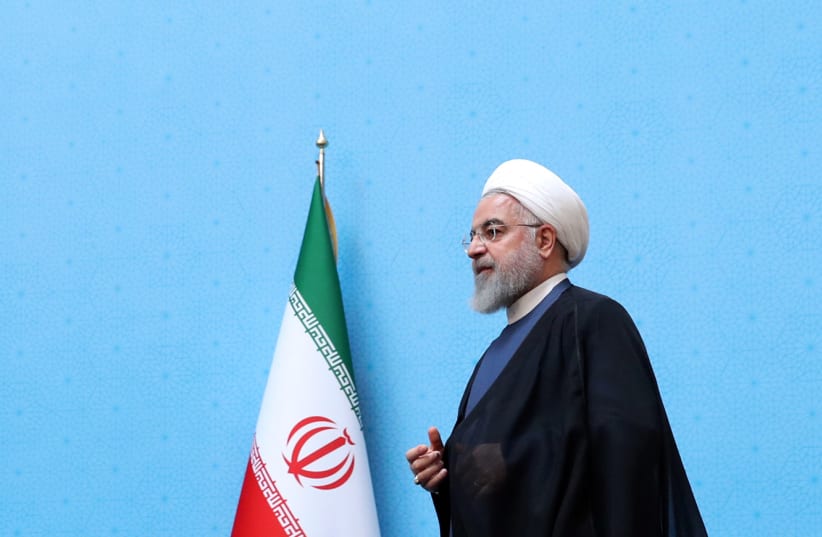The Paris-based Financial Action Task Force (FATF) , an inter-governmental organization established in 1989, said “If before February 2020, Iran does not enact the Palermo and Terrorist Financing Conventions in line with the FATF Standards, then the FATF will fully lift the suspension of counter-measures and call on its members and urge all jurisdictions to apply effective counter-measures, in line with recommendation 19.”
The FATF said, in the meantime, it was asking members to demand scrutiny of transactions with Iran and tougher external auditing of financing firms operating in the country.
Toby Dershowitz, senior VP for government relations at the non-partisan Foundation for Defense of Democracies in Washington D.C, said that “Iran has failed – for the sixth time - to complete its Action Plan. FATF today not only re-imposed the two additional countermeasures - enhanced reporting of financial transactions and increased external audit requirements for financial groups for their branches and subsidiaries located in Iran – but said it would re-impose all countermeasures in February if by then Iran has not taken the required action.
She added that: “this signals to the global banking sector and the wider market that it is not safe to do business with Iran. It also means that Iran is more interested in continuing its illicit money-laundering and terror financing than it does integrating into the global financial system. So much for Tehran trying to convince its own people that they, not Iran’s terrorism, are the government’s priority. “
Dershowitz, an FATF expert, said “Kudos to the US delegation for its leadership in ensuring the FATF process worked effectively to hold Iran accountable for its illicit activities that threaten the global financial system.”
The FATF said in its statement that it "expresses its disappointment that the Action Plan remains outstanding. The FATF expects Iran to proceed swiftly in the reform path to ensure that it addresses all of the remaining items by completing and implementing the necessary Anti-Money Laundering and Counter-Terrorist Financing reforms.”
Foreign businesses say Iran’s compliance with the Financial Action Task Force (FATF) rules is key if Tehran wants to attract investors, especially after the United States re-imposed sanctions on Iran last year.
France, Britain and Germany have tied Iran’s compliance and removal from the FATF blacklist to a new channel for non-dollar trade with Iran designed to avert US sanctions.
Iran’s leaders are however divided over complying with the FATF. Supporters say it could ease foreign trade with Europe and Asia when the country’s economy is targeted by U.S. penalties aimed at its isolation.
Hardline opponents argue that passing legislation toward joining the FATF, could hamper Iran’s support for its allies, including Lebanon’s Hezbollah. The US, Canada, Israel, the Netherlands, the United Kingdom and the Arab League classify Hezbollah as a terrorist organization. The Jerusalem Post reported on Wednesday that Iranian-backed Hezbollah members plan to "attack" Lebanese banks that seek to comply with US sanctions to root out Hezbollah-sponsored financial terror.
The chances of Iranian compliance within four months appeared slim. Its own action plan to meet with the FATF requirements, implemented in 2016, expired in January 2018.Reuters contributed to this report.
